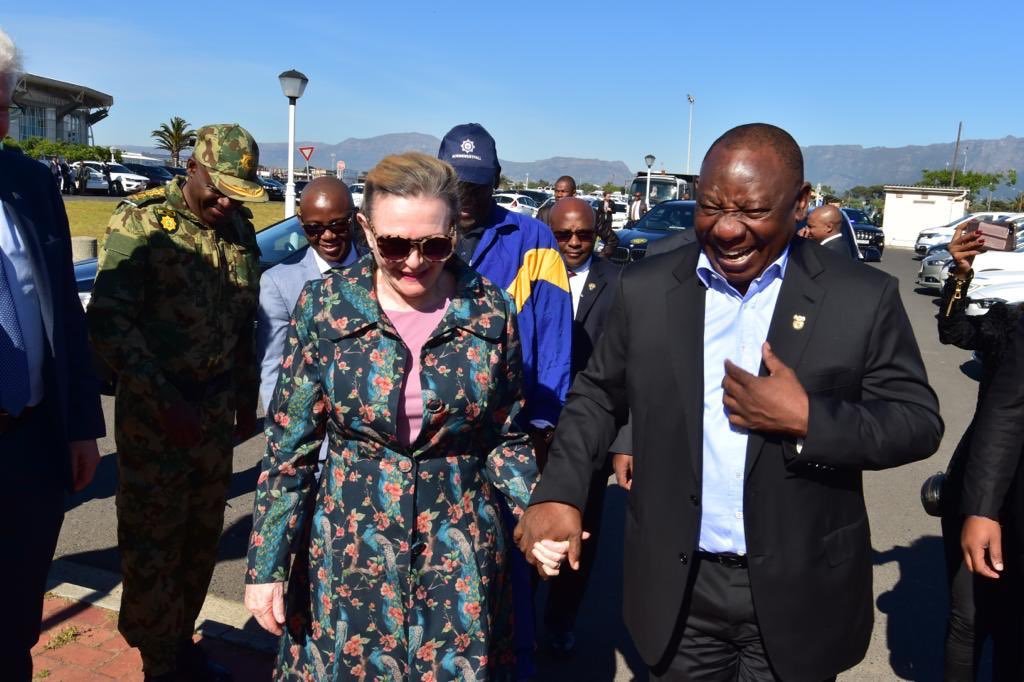The mention of the word ANC used to strike fear in the hearts of the oppressor. The revolutionary party, propelled to stronger heights by stalwart Nelson Mandela, was an icon of the African quest for freedom and ANC’s struggle for democracy. Mandela walked to freedom and delivered that democracy to Africa’s last-born – South Africa. Today, he probably is turning in his grave as the party has flip-flopped to rock bottom and is now clinging to power thanks to what looks like a marriage of convenience with former foe, the Democratic Alliance (DA).
The African National Congress (ANC) once stood as a beacon of hope and resilience. Founded in 1912, it was a driving force against apartheid, leading a protracted struggle that culminated in the historic 1994 elections, bringing Mandela to power as the nation’s first black president. The ANC’s struggle for democracy garnered it immense support, both locally and internationally. However, the journey from liberation movement to ruling party has been fraught with challenges, many of which the ANC has failed to navigate successfully.
The decline of the ANC can be attributed to several factors, each a stark reminder of the delicate balance required to sustain a democracy. One of the most glaring issues has been corruption. Over the years, numerous scandals have tainted the party’s image, from the infamous arms deal in the late 1990s to the more recent allegations against former president Jacob Zuma. Corruption erodes public trust and diverts resources away from essential services, crippling the very people the party once vowed to uplift. This has significantly marred the ANC’s struggle for democracy.
Moreover, the ANC has struggled with internal factionalism. The unity that once characterised the party’s fight against apartheid has given way to infighting and power struggles. These divisions have often paralysed decision-making processes and hindered effective governance. As leaders vie for power and influence, the needs of ordinary South Africans are sidelined, resulting in poor service delivery and growing public discontent. Such issues detract from the ANC’s struggle for democracy, causing many to question its current path.
Another critical factor has been the ANC’s failure to address socio-economic inequalities. While the end of apartheid dismantled the legal framework of racial segregation, the economic disparities it created have persisted. Many South Africans still live in abject poverty, and unemployment rates remain high. The ANC’s policies have often been criticised for being either ineffective or inadequately implemented. The promise of a better life for all remains unfulfilled for many, breeding frustration and disillusionment. These socio-economic challenges are a significant hurdle in the ANC’s struggle for democracy.
The recent coalition with the Democratic Alliance (DA) signifies a dramatic shift in South African politics. The DA, once a staunch adversary of the ANC, has now become a bedfellow in a bid to retain power. This coalition, seen by many as a marriage of convenience, underscores the extent of the ANC’s desperation. It also highlights a broader trend in African politics where ideological principles are often sacrificed for political survival. Such alliances may offer short-term stability but rarely result in lasting solutions to deep-seated issues. Despite this, the ANC’s struggle for democracy continues to be a focal point of its political narrative.
However, while many may see the ANC as having sold out the revolution, it is worth noting that the party should be applauded for not resorting to oppressive means of clinging to power like we have seen with its neighbours, especially up north. The ANC’s decision to choose peace and to admit its failures should be hailed as it shows a culture of maturity and tolerance that other African nations should look up to. This aspect of the ANC’s struggle for democracy highlights a commendable dedication to peaceful political processes.
The fall of the mighty ANC offers several lessons for African politics and democracy. Firstly, the importance of integrity and accountability cannot be overstated. Corruption and mismanagement are cancers that can erode even the most robust democracies. Leaders must be held accountable, and institutions must be strengthened to resist corrupt practices.
Secondly, political parties must remain connected to the needs and aspirations of the people. When leaders become insulated from the electorate, they lose touch with the realities on the ground. Grassroots engagement and responsive governance are crucial for maintaining public trust and legitimacy.
Lastly, addressing socio-economic inequalities is vital for the health of any democracy. Economic empowerment and social justice are not mere add-ons but essential components of a functioning democracy. Policies must be crafted and implemented with the aim of creating inclusive growth and shared prosperity.
As South Africa navigates this turbulent period, it is essential for the ANC to reflect on its legacy and realign its priorities. The journey from liberation to governance is a complex one, fraught with pitfalls. However, with a renewed commitment to the values that once defined it, the ANC can still play a pivotal role in shaping South Africa’s future. For African democracies, the story of the ANC’s struggle for democracy serves as both a cautionary tale and a call to action, reminding us that the struggle for freedom and justice is an ongoing one.
ALSO CHECK THIS OPINION: Why an ANC and DA coalition government may be best for South Africa


[…] ALSO CHECK OUT: How the mighty have fallen: Is ANC’s struggle for democracy at a crossroads? […]
[…] these words, President Cyril Ramaphosa took the oath of office on Wednesday 20 June, 2024 in a momentous inauguration […]
[…] ALSO READ: How the mighty have fallen: Is ANC’s struggle for democracy at a crossroads? […]